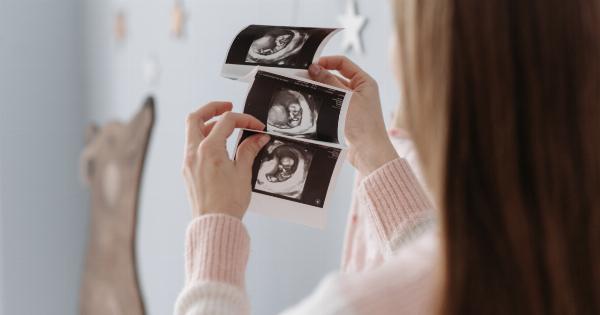During pregnancy, a woman’s body undergoes tremendous changes to support the growth and development of the fetus. One such change is the occurrence of uterine contractions, which are a natural part of the pregnancy process.
However, there are times when uterine contractions are a cause for concern, and it is important for expectant mothers to be aware of the warning signs.
What are Uterine Contractions?
Uterine contractions are sometimes called Braxton Hicks contractions, after the physician who first described them. Braxton Hicks contractions are intermittent contractions of the uterine muscle that begin as early as the first trimester of pregnancy.
They usually become more frequent and intense as the pregnancy progresses. These contractions can be felt as a tightening of the abdomen that lasts for a few seconds to a few minutes. They are usually painless and can be differentiated from true labor contractions, which are typically more regular and more painful.
When are Uterine Contractions Normal?
Uterine contractions are a normal part of pregnancy, and most women experience Braxton Hicks contractions at some point. These contractions help to tone and strengthen the uterine muscle in preparation for labor and delivery.
They are usually harmless and do not cause any complications during pregnancy.
When Should You Call Your Doctor?
While most uterine contractions are harmless, there are times when they can be a cause for concern. If you experience any of the following symptoms, you should call your doctor immediately:.
- Contractions that become more frequent and intense
- Contractions that are accompanied by pain or pressure in the pelvis or lower back
- Contractions that are regular and last for more than one hour
- Contractions that occur before 37 weeks of pregnancy, which could be a sign of preterm labor
- Any vaginal bleeding or discharge
- Decreased fetal movement
What Causes Uterine Contractions?
The exact cause of uterine contractions is not known. However, there are several factors that can increase the likelihood of experiencing Braxton Hicks contractions:.
- Dehydration: Not drinking enough water can cause the body to release oxytocin, a hormone that can trigger contractions.
- Sexual activity: Sexual activity can cause the uterus to contract, sometimes leading to Braxton Hicks contractions.
- Physical activity: Exercise can cause the uterus to contract, especially if you have been inactive for some time.
- Full bladder: A full bladder can put pressure on the uterus and cause it to contract.
- Stress: Stress can cause the body to release hormones that can trigger contractions.
What Should You Do if You Experience Uterine Contractions?
If you experience uterine contractions, there are several things you can do to help alleviate the discomfort:.
- Drink plenty of water: Staying hydrated can help prevent contractions triggered by dehydration.
- Change positions: Changing your position can help relieve the pressure on the uterus.
- Relax: Stress can cause contractions, so taking a few deep breaths or doing relaxation exercises can help alleviate the discomfort.
- Empty your bladder: If a full bladder is causing the contractions, emptying your bladder can help relieve the pressure on the uterus.
Conclusion
Uterine contractions are a normal part of pregnancy and are usually harmless. However, there are times when they can be a cause for concern, and it is important for expectant mothers to be aware of the warning signs.
If you experience any symptoms of preterm labor or if you are worried about the number of contractions you are having, do not hesitate to call your doctor. It is better to be safe than sorry when it comes to the health of you and your baby.






























